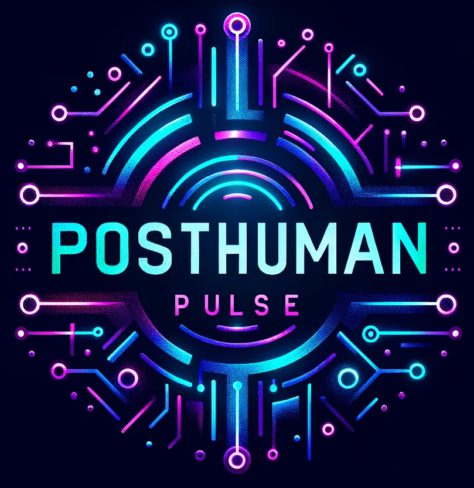Discover how California’s pioneering legislation safeguards patient rights while balancing AI innovation in healthcare.
As healthcare continues to adapt to technological advancements, artificial intelligence (AI) finds itself at the epicenter of this transformation. Yet, with such power comes the responsibility of ensuring ethical standards in patient care.
Enter California’s Physicians Make Decisions Act (SB 1120), a groundbreaking piece of legislation that mandates human oversight on AI-driven healthcare decisions. By doing so, it sets a new benchmark for patient safety and ethical practices in healthcare. This article delves into the intricacies of this law, its ethical implications, and how it aims to strike a balance between innovation and patient protection.
Understanding the Physicians Make Decisions Act (SB 1120)
At its core, the Physicians Make Decisions Act (SB 1120) is a legislative response to growing concerns about the unchecked power of AI in healthcare. Authored by Senator Josh Becker, this law firmly establishes that decisions about medical treatments cannot be solely determined by algorithms.
Instead, they require the critical oversight of licensed healthcare providers. According to the California Senate District 13 News, “any denial, delay, or modification of care based on medical necessity must be reviewed and decided by a licensed physician or qualified health care provider with expertise in the specific clinical issues at hand” (source: California Senate District 13 News).
The legislation sets forth clear standards for AI usage, ensuring that any AI-driven decision undergoes rigorous human review. This requirement aims to prevent improper or unethical practices that might arise from algorithmic biases or inaccuracies. In an era where technology often outpaces regulation, SB 1120 represents a timely intervention, reinforcing the indispensable role of human judgment in healthcare.
The Ethical Implications of AI in Healthcare
The integration of AI in healthcare brings with it a host of ethical considerations. While AI has the potential to streamline processes and improve patient outcomes, it also poses risks related to bias and inaccuracies. An algorithm, after all, is only as good as the data it learns from.
Without human oversight, there is a real danger that AI could perpetuate existing healthcare disparities or make flawed decisions that affect patient care. The law’s emphasis on human review addresses these concerns head-on.
It acknowledges that while AI can assist in decision-making, it should not replace the nuanced judgment that healthcare professionals bring to the table. As noted in the Senate District 13 News article, the legislation “establishes fair and equitable standards for companies using AI in their utilization review processes” (source: California Senate District 13 News).
This move is crucial in safeguarding against the potential adverse effects of AI, ensuring that patient welfare remains the priority.
Balancing Innovation and Patient Safety
Innovation is a double-edged sword in healthcare. While technological advancements can lead to improved care and efficiency, they must be implemented with caution to avoid compromising patient safety. The Physicians Make Decisions Act (SB 1120) embodies this balance.
By mandating human oversight, it allows for the continued integration of AI in healthcare but within an ethical framework that prioritizes patient safety. The law provides a blueprint for ethical AI practices, setting standards that prevent the misuse of technology in healthcare.
For instance, it addresses the need for transparency in AI-driven decisions, ensuring that patients and providers alike understand the basis for care modifications. This transparency is vital in maintaining trust in AI applications and ensuring that they enhance rather than detract from patient care.
Impact and Implications
California’s SB 1120 has far-reaching implications for the healthcare industry and AI applications at large. By mandating human oversight, it fundamentally alters the landscape of AI in healthcare, setting a precedent for other states and countries to follow.
The law highlights the importance of ethical standards in AI development, emphasizing the need for transparency, accountability, and human involvement in decision-making processes. The potential applications of this law are vast. It not only safeguards patient rights but also encourages healthcare providers to adopt AI ethically.
As AI continues to evolve, the need for similar regulations will likely grow, ensuring that technological advancements align with ethical considerations. However, challenges remain, such as the need to constantly update regulations in line with technological advancements and the potential resistance from stakeholders accustomed to AI-driven efficiencies.
Looking ahead, the Physicians Make Decisions Act (SB 1120) is a harbinger of more comprehensive AI regulations in healthcare. It underscores the critical role of human oversight in safeguarding ethical practices and patient safety. As the healthcare industry continues to integrate AI, similar measures will be essential to ensure that innovation complements rather than compromises patient care.
“Decisions about medical treatments are made by licensed health care providers, not solely determined by artificial intelligence algorithms.” – California Senate District 13 News
“The law establishes fair and equitable standards for companies using AI in their utilization review processes.” – California Senate District 13 News
Learn More
- Primary source link: California Senate District 13 News – An in-depth look at the landmark legislation.

